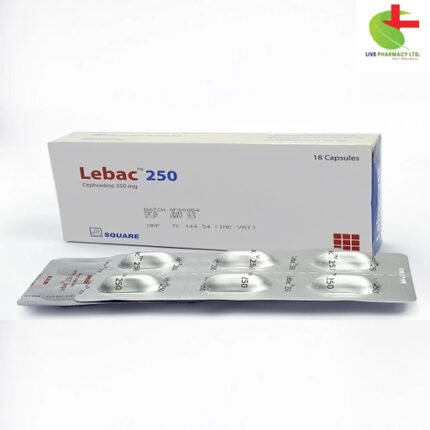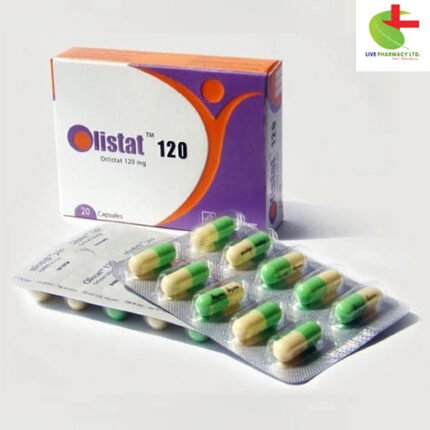Lebac 500
90.30৳ Strip
- Lebac is a powerful antibiotic tackling a variety of bacterial infections, including respiratory tract issues like sinusitis, urinary tract infections, and skin conditions like cellulitis.
- Its broad-spectrum efficacy covers both gram-positive and gram-negative bacteria, making it a versatile treatment option.
- Tailored dosages for adults and children ensure precise administration and efficacy while minimizing potential side effects.
- Available for oral consumption or injection, Lebac provides reliable relief under strict adherence to safety guidelines.
 Brand
Brand
|
Square Pharmaceuticals PLC |
|---|---|
 Generics
Generics
|
Cephradine |
Indications
Lebac is prescribed to address infections triggered by susceptible Gram-positive and Gram-negative bacteria. These include:
- Upper respiratory tract infections: such as sinusitis, pharyngitis, tonsillitis, laryngo-tracheo bronchitis, otitis media
- Lower respiratory tract infections: encompassing acute and chronic bronchitis, lobar pneumonia, bronchopneumonia
- Urinary tract infections: covering cystitis, urethritis, pyelonephritis
- Skin and soft tissue infections: including abscess, cellulitis, furunculosis, impetigo.
Lebac demonstrates susceptibility against various microorganisms in vitro, including Staphylococci, Streptococci (including Streptococcus pyogenes), Escherichia coli, Klebsiella spp, Proteus mirabilis, Haemophilus influenza, Shigella spp, Salmonella spp, and Neisseria spp.
Pharmacology
Cephradine, a semisynthetic broad-spectrum bactericidal antibiotic, targets both gram-positive and gram-negative microorganisms. Its action primarily disrupts bacterial cell wall synthesis, leading to bacterial lysis.
Dosage & Administration
For oral administration in adults:
- Urinary tract infections: 500mg four times daily or 1g twice daily. Higher doses may be necessary for severe or chronic infections.
- Respiratory tract infections: 250 to 500mg four times daily or 500mg to 1g twice daily, depending on severity.
- Skin and soft tissue infections: 250 to 500mg four times daily or 500mg to 1g twice daily, adjusting based on the infection site and severity.
In children, the total daily dose ranges from 25 to 50mg/kg, divided into two or four equal doses.
For injectable administration, dosages vary based on age and severity of infection.
Interaction
Concurrent use of nephrotoxic drugs like aminoglycosides with Cefradine may heighten the risk of kidney damage. Diuretics and probenecid may exacerbate renal toxicity.
Contraindications
Avoid Cephradine in patients with known or suspected hypersensitivity to cephalosporins.
Side Effects
Side effects are primarily gastrointestinal disturbances and, occasionally, hypersensitivity reactions. Skin reactions, including urticaria, have been reported. Rare effects encompass blood disorders, immune system reactions, psychiatric and nervous system disorders, hepatobiliary disorders, renal and urinary disorders, and investigations-related findings.
Pregnancy & Lactation
While animal studies show no teratogenic effects, safety during pregnancy isn’t established. Cephradine is excreted in breast milk, caution is advised during lactation.
Precautions & Warnings
- Prolonged use may lead to superinfection.
- Use cautiously in patients allergic to penicillins.
- Positive Coombs’ test possible.
- Caution in patients with glucose-galactose malabsorption.
Use in Special Populations
Dosage adjustments are necessary for patients with renal impairment.
Therapeutic Class
First-generation Cephalosporins.
Storage Conditions
Lebac Suspension should be freshly prepared and used within specified timeframes. Injection solutions should be used promptly or discarded according to storage guidelines. Keep out of children’s reach and dispense only with a physician’s prescription.













Reviews
There are no reviews yet.